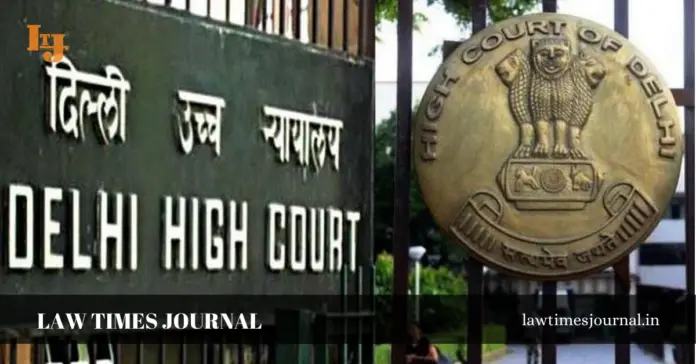
The Delhi High Court recently upheld in the case of Kishore Chandra Sahoo v UOI and others that the dismissal of a Border Security Force (BSF) employee who was accused of having contact with a Pakistani intelligence officer (PIO).
The Bench of consisting of Justices Navin Chawla and Manmohan concluded that the allegation against the petitioner was that he was in regular touch with a PIO and that the show cause notice and investigation into the case would threaten the country’s national security.
“Clearly, if a show cause notice is issued to him and a response is requested, the same is likely to jeopardize national security because certain important operational and deployment facts may come into focus during such an investigation.” The source and material used to form a conclusion about whether or not the person contacted are a PIO would also have to be revealed. As a result, respondent no.3’s the opinion/satisfaction cannot be considered to be irrational or perverse, warranting any interference by this Court in the exercise of its judicial review powers,” the Bench said. The court was hearing a petition submitted by Kishore Chandra Sahoo, who joined the BSF in 2002 and was assigned to the 114 Battalion’s Border out Post (BOP) Kalka. On November 23, 2020, he brought his cellphone to work and dialed the suspected PIO’s number.
Four cellphones and a SIM card were discovered in his possession after a search of his things. The allegations were confirmed by a Staff Court of Inquiry (SCOI), which found him guilty of communicating with the PIO since 2018 and carrying the phones to his station multiple times. His action, according to the SCOI, was in violation of the BSF’s Standard Operating Procedures and Instructions, and he was terminated from duty as a result.
Sahoo submitted two complaints with the Inspector General of Rajasthan Frontier Force. He also filed a motion with the High Court, requesting that the IG Frontier, BSF, decide on the claims. The case was closed with instructions to the IG to make a decision on the representations as soon as feasible. His appeals were dismissed in June, with the BSF ruling that his request for reinstatement in service was without merit. Sahoo filed another lawsuit in July, which was again dismissed. After that, he went back to the High Court, claiming that he was fired without a formal departmental investigation, therefore violating natural justice principles. He further claimed that there was no evidence that avoiding a formal investigation was required. He went on to say that Section 11(2) of the Border Security Force Act of 1968 does not provide the commandant the authority to issue orders dismissing him from service and that such authority is reserved for the DG. The Court, on the other hand, dismissed both arguments, holding that the rules clearly state that if the competent authority determines that it is not expedient or reasonably practicable to give the person sought to be terminated from service an opportunity to show cause, it must record the reasons in writing.
According to the ruling, “a reading of the above Rule would show that the Commandant, as the Prescribed Officer, was authorized to dispense with a disciplinary inquiry against the petitioner if he was of the opinion that holding a disciplinary inquiry is not expedient or reasonably practicable in the facts of the case.” The Court also declined to accept Sahoo’s claim that his dismissal was based only on suspicion because he never denied communicating with the PIO or carrying a cellphone on duty. Advocates Pradeep Gupta, Parinav Gupta, Mansi Gupta, and Mamta Sharma represented Sahoo, while Senior Panel Counsel Akshay Amritanshu and government pleader Rishiraj represented the respondents.








